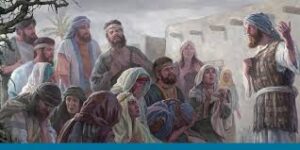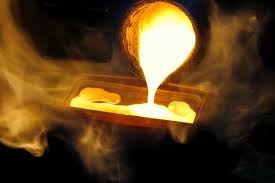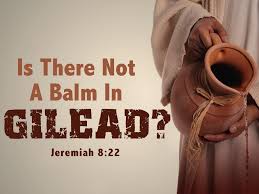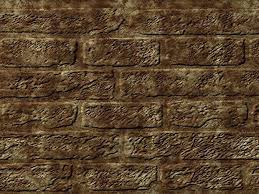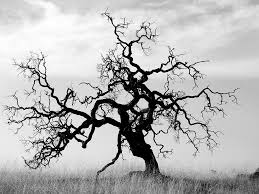Bu – These gods will Perish From the Earth, But the LORD is the True God 10: 1-16
These gods will Perish From the Earth,
But the LORD is the One True God
10: 1-16
These gods will perish from the earth, but the LORE is the One True God DIG: What two Gentile customs does God discourage Isra’el? What feeling lies beneath these words about idols? If idols are so impotent and worthless (Psalm 115:4-7), why do you think God’s people constantly turn to them? Did idol worship play a part in the social and economic fabric of Palestine (Acts 19:23-27)? How was the Jewish concept of God different than that of the pagans? How easy or difficult would it be to combine the monotheism of Isra’el with worship of local cultic deities? Who ultimately is mocked by this attempt? The words portion and inheritance are equated in 10:16. What does it mean that Israel’s inheritance is YHVH? That ADONAI’s portion is Isra’el?
REFLECT: These scriptures have been used to condemn the tradition of using and decorating Christmas trees. Using this passage, can you support that idea? How do you know Jeremiah is talking about something else? Idolatry has always been big business. Can you think of any modern industries that depend on our worship? To what images must be bow in order to participate in the social and economic system around us? What kinds of things do people idolize today – things that they are counting on to speak to them, carry them or do good for them, as only the LORD can? What aspect of nature speaks most clearly to you of God’s power? In what sense might 10:5 apply to you? Is there anything you fear that you really don’t need to?
609 BC during the three-month reign of Jehoahaz
In Jeremiah’s time as in our own, the critical faith issue is not atheism . . . but idolatry. Specifically, in the prophet’s day the temptation was the attraction of the gods of Babylon. In our day the comparable temptation may be the gods of militarism, of nationalism, of naturalism, of consumption, and of technology. In both atheism and idolatry, however, the temptation is to vest one’s life hope in the things we ourselves generate, instead of receiving life as a gift from the One who stands beyond us and for us. Characteristically the Bible does not deny the existence of other gods. The Bible makes an assumption that the world is polytheistic. The other gods exist. They have seductive power, but what they lack is power for life. They cannot do anything, and in that decisive test they are utterly unlike YHVH, who has the power to give life and therefore also the power to judge life.101
Since Jeremiah was convinced that the future of Isra’el lay with those in exile, he made every effort to keep in touch with them, he sent them a message, saying: Hear what ADONAI says to you, people of Isra’el (10:1).
Idolatry made sense to those who worshiped the various gods and goddesses of the nations. Because people repeated myths about them, it was natural for them to construct idols of their deities. And since Marduk (50:2) was the principal god of Babylon, his temple would house a great image of him in the same way a place housed a king. And just as the king in the palace would be clothed and fed by his attendants, so in the temple, the idol was clothed and fed by the priests. During the New Year’s festival, the idol was carried around the city so that the deity could assert his authority over the realm for the coming year.
The Jews, of course, were well aware of the Ten Commandments: the first forbid them from worshiping other gods (see the commentary on Exodus, to see link click Dk – You Shall Have No Other Gods Before Me) and the second forbid them from making any idols (see the commentary on Exodus Dl – You Shall Not Make For Yourselves an Idol). Moshe had taught them to listen to the WORDS of YHVH, words that are dynamic, rather than to depict ADONAI in a static way. So when the exiles arrived in Babylon, they must have been both horrified and fascinated by the images they saw, huge images glittering with silver and gold, richly clothed in blue and purple. There, dazzling before their eyes, were what had always been forbidden to have anything to do with, right out in the open for everyone to see. Furthermore, the exiles must have heard from their Babylonian captors, over and over again, such comments as, “Marduk won the war for us.” Or, “Who is the God you say you worship? Ha’Shem? Well, Marduk is obviously stronger than Ha’Shem. There he is right over there being paraded around, take a good look at him.”102
Idols: So Jeremiah warned the Jews in exile: This is what the LORD says: Do not learn the ways of idolatry from the [Gentile] nations; furthermore, do not be terrified by signs in the heavens, by predictions of astrology or any other occult practice. While these things terrify the [Gentile] nations, they should not terrify Jews. Then Jeremiah (following Isaiah 41:7, 44:9-20, 46:5-7) uses satire in mocking the false gods and the people who worship them, saying: For the religious practices of these people are a delusion (Hebrew: hebel meaning vapor, nothingness, or vanity); they cut a tree out of the forest, and a craftsman shapes it with his chisel. They use an ax, they cut it down, and they bring it in. Then they decorate it. They adorn it with silver and gold; they fasten it with hammer and nails so it won’t fall over (Isaiah 40:19-20; 45:12-20). The context here is idolatry – not Christmas! Like a scarecrow in a cucumber patch, their idols cannot speak; they must be carried in religious procession because they cannot walk. Do not fear them; they can do you no harm nor can they do you any good (10:2-5).

The One True God: In contrast to the foolishness of idolatry in verses 1-5 we see the greatness and majesty of the One true God. No one is like You, ADONAI; You are great, and Your name is mighty in power. Who should not fear you, King of the nations, among all the wise leaders of the nations and in all their kingdoms, there is no one like You (10:6-7). Ha’Shem is the One to be feared, not some piece of decorated wood. He is the Ruler of all the [Gentile] nations.
Idols: Jeremiah contrasts what he just said about God with idols. They are all senseless and foolish, like having a piece of wood as a teacher. They are taught by worthless (Hebrew: hebel) wooden idols. Hammered silver is brought from Tarshish and gold from Uphaz. What the craftsman and goldsmith have made is then dressed in blue and purple – all made by skilled workers (10:8-9). Idolatry is nothing more than the work of skilled men.
The One True God: But the LORD is the true God. What a contrast! Whereas the idols are false, He is the One true God, literally is truth. Truth is the seal of God (Talmud). Now, Adonai ELOHIM, You alone are God; Your words are truth (Second Samuel 7:28 CJB). Though the idols are dead, He is the living God. Whereas the idols cannot do good or evil, He is the eternal King. When He is angry the earth trembles; the nations cannot endure His wrath (10:10). In contrast to their impotence, YHVH is alive and the King of the universe.
Idols: Then in the climax of his message Jeremiah relates this little song concerning the future of idolatry: These gods [idols], who did not make the heavens and the earth will perish from the earth and from under the heavens (10:11). The entire book of Jeremiah is written in Hebrew except for this one verse. The prophet wanted everyone to get the point. Accordingly he wrote this verse in Aramaic so that the Jews would understand.
The One True God: But God made the earth by His power; He founded the world by His wisdom and stretched out the heavens by His understanding. Furthermore, He controls nature. When He thunders, the waters in the heavens roar; He makes clouds rise from the ends of the earth. He sends lightning with the rain and brings out the wind from His storehouses (10:12-13). The powerlessness of the idol is contrasted with God’s supremacy over the elements.
Idols: By contrast, idols can do none of these things. Everyone who engages in idol worship is senseless and without knowledge; every goldsmith is shamed by his idols. The images he makes are a fraud; they are lifeless and have no breath in them. They cannot keep their promises. They are worthless (Hebrew: hebel), the objects of mockery; when their judgment comes, they will perish (10:14-15). The contrast with the LORD leads to the conclusion that they are unworthy of trust or loyalty, commitment or obedience.
The One True God: In contrast, while all the false idols will cease, the God of Isra’el, who is the portion of Jacob is not like these, for He is the Maker of all things, including Isra’el, the people of His inheritance – ADONAI of heaven’s angelic armies – will never cease (10:16). If YHVH owns Isra’el as His inheritance, then Isra’el can be regarded in a special sense as His portion.
My flesh and my heart may fail,
but God is the strength of my heart,
and my portion forever (Psalm 73:26).
You are my portion, O LORD,
I have promised to obey your words (Psalm 119:57).
I cry to you, ADONAI;
I say, “You are my refuge,
my portion in the land of the living (Psalm 142:5).
Judah has the option to be in relationship with and loyal to the God who can give new life. This God must be served and is never at the disposal of Y’hudah. The alternative is to be allied with gods who have no power for life and cannot be trusted. The structure of the text requires a decision. Jesus said it this way: No one can serve two masters. Either you will hate the one and love the other, or you will be devoted to one and despise the other. You cannot serve both God [and idols] (Matthew 6:24).
In our time, we seem to be deeply, if not hopelessly, entangled in our self-centered systems of security, well-being, and prosperity. But then, our entanglement destroys us, for it talks us out of neighbors love, out of genuine freedom, and destines us to the anxiety of competence and finally despair. That the source of life lies outside us and delivers us from being self-sufficient. The modern form of idolatry is finally autonomy, the sense that we live life on our own terms. That we, indeed, have both hands on the steering-wheel of our lives. But such autonomy is a lie; the truth lies in ADONAI. It was so for Jeremiah and the citizens of Judah and it is so now . . . for us.103





